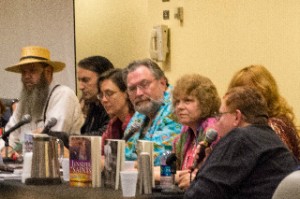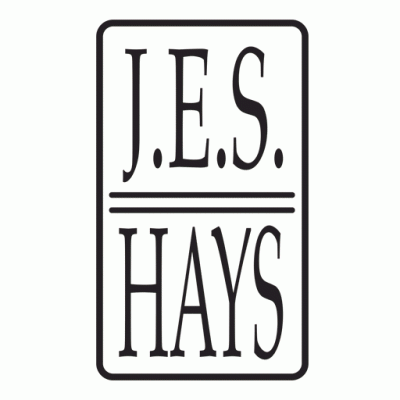Great panel with great authors – here are the highlights
Q: Which comes first for you – characters or world?
Jennifer St. Giles: I have to add conflict to the choices – you need conflict. Whatever inspires you, that’s what you use.
Lynn Abbey: It never happens the same way twice – and if you think it will, you’re in the wrong panel.
Jonathan Maberry: The other day, a couple of characters were talking in my head. Now, if you’re not a writer, this is a cry for help.
EC Ambrose: One caution – your instincts have been shaped by the world around you, so instead of using the first thing that springs to your mind, keep looking and digging. You’ll either have a character with a problem, then find a world; or you’ll have a world and a problem, and need a character.
Jim Butcher: I played a lot of D&D – I start with a map! When you’re learning, you have to try different things and weave them together to see what works. Just remember the Iceberg Rule: your world is way more interesting to you, but your readers don’t need to know the vast majority of that information – just give them what they need for any one scene.
Michael Bunker: Wow, I think about this a LOT less than most people do!

Q: What’s the most important thing you’ve learned from an editor?
Jim: My editor didn’t mean to teach me this! What he asks for and what he wants are two different things. Editor’s aren’t storytellers, so you have to learn how to create the effect they want.
EC: Editors are usually right about where there’s a problem – but they’re usually wrong about what that problem is.
Jennifer: Keep it simple and clear.
Michael: Have a thick skin!
Q: What is your least favorite part of world building?
Michael: the terror of realizing that other people will be existing in this world, and trying not to mess it up.
Jim: trying to decide what to throw out!
EC: knowing that I will miss something – either I’ll get it wrong, leave it out, or just not think I need to research that bit.
Jonathan: finding a piece of cool research and it doesn’t fit the damn story!
Lynn: My favorite part is that eureka moment when two things you wouldn’t ordinarily put together fit – and then it contradicts something you did yesterday.
